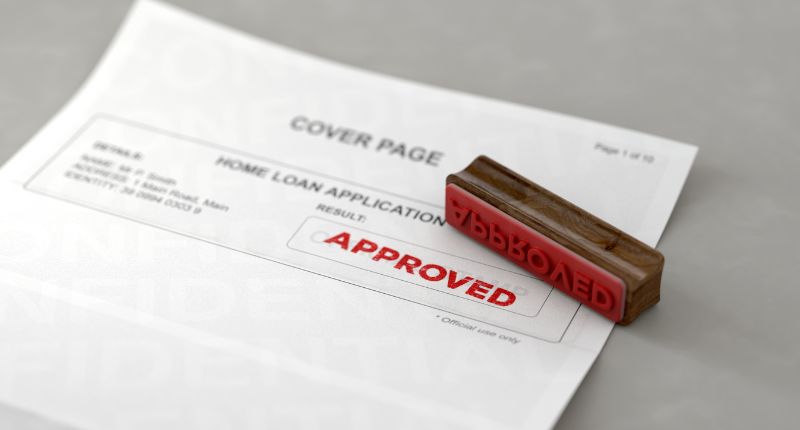
- One person on an average income can borrow about $350,000.
- A couple with an average income can borrow about $800,000.
- Experts said the process may be more complicated than an owner-occupier loan.
There is no specific limit on the size of a real estate investment loan, experts told The Property Tribune.
The factors that affect your ability to borrow are generally similar to a home loan for owner-occupiers. However, there are additional factors that you may need to consider when taking out a loan for an investment property.
Lenders may take into account additional factors, which can make the process more complicated.
How much can I borrow for an investment property?
Canstar ran the numbers* for The Property Tribune to determine the cost of getting a loan for an investment property.
|
Gross Annual Income |
Borrowing Power (6.86% Interest Rate, 30 Year Loan Term) |
Max Affordable Property |
|
Single ($21,840 Annual Expenses) |
||
|
$60,000 |
$174,000 | $217,500 |
| $90,000 | $330,000 |
$412,500 |
|
$94,000 (ABS Average) |
$351,000 | $438,750 |
| $120,000 | $486,000 |
$607,500 |
|
$150,000 |
$631,000 |
$788,750 |
|
Couple ($31,670 Annual Expenses) |
||
|
2 x $45,000 |
$309,000 | $386,250 |
| 2 x $60,000 | $464,000 |
$580,000 |
|
2 x $75,000 |
$620,000 | $775,000 |
| 2 x $90,000 | $776,000 |
$970,000 |
|
2 x $94,000 (ABS Average) |
$817,000 |
$1,021,250 |
| Source: Canstar – 22/06/2023. Interest rate based on the average variable investment home loan rate on Canstar’s database, available for a $500k, 80%LVR, P&I loan; excluding introductory and other special condition loans. Annual expenses of $21,840 for singles and $31,670 for couples based on the Household Expenditure Measure (HEM) for Australians earning $80,000 to $90,000 per year. Borrowing power calculations assume a loan term of 30 years, 80% of income available to service the loan, and a 3% interest rate buffer. All input and output figures of the calculator are rounded to the nearest $100. Income tax calculated for year ending 2023. | ||
Can I borrow for an investment property if I already have a home loan?
If you are not using equity from an already mortgaged property, obtaining an investment loan is unlikely to impact your existing home loan, Compare Club‘s home loan expert broker, Sophie Matthews, told The Property Tribune.
“Your borrowing power will still be assessed on income and outgoings regardless.
“If you have an existing mortgage, it’ll affect your borrowing power, because it’s an outgoing expense. It would be taken into consideration in the same way a car loan, credit card debt or a personal loan would.
“The more debt you heap on top of debt – using equity from an existing mortgaged property to buy another property, for example – the more risky it is for you and your lender, and some banks may be reluctant to take you on or offer you an attractive rate.”
How is it different to an owner-occupier home loan?
Getting a loan for an investment property could be a more complex process than for your own home.
Finder‘s home loans expert, Richard Whitten, said that lenders treat investment properties as higher-risk purchases, “which means it can be more complicated to get your loan approved.”
Lenders may also take into account more factors when assessing your loan.
“When applying for an investment loan, the bank looks at a person’s existing debts alongside the income they are likely to earn both in their regular job and by renting out the property, along with a range of other financial factors,” said RateCity research director Sally Tindall.
“Investors can potentially use spare equity in their own home to help fund a deposit for an investment property, however, doing this is likely to result in higher mortgage repayments on their current loan,” added Tindall.
If intend to leverage the equity in your family home to purchase an investment property, the structure you decide on with your broker has an impact on the amount you’ll be able to borrow, Matthews told The Property Tribune.
“You may not need much of a deposit to do this; it depends on how much equity you have in your property. Cross-collateralisation ties the value of your two properties together, and you’ll need less deposit and be able to borrow more than if you kept the two loans separate.”
Matthews highlighted two main downsides to cross-collateralisation:
- Any issue with repaying your investment property loans can put your family home at risk.
- When/if you want to sell either property, the loans are still linked. This can be undone, but it costs you down the track.
“It’s worth a conversation with your broker at the start of your property investment journey to be clear about your goals for purchasing your investment property, and how long you intend to hold onto it,” added Matthews.
Among the other differences, Matthews said, “The rental income from the new property can form part of your overall income assessment for your loan application.”
“On the other hand, the lender will still cut down some of that proposed income to cover their risk if the property stays vacant for any length of time. You should also expect a slightly higher interest rate for investment loans.”
~~
Before making any financial decisions, please do your own independent research, taking into account your own situation. This article provides factual information only and is not intended to imply a recommendation or opinion about a financial or credit product. See our Terms of Use.
* Note: The scenario assumes that the investor doesn’t have any other outstanding loans.







